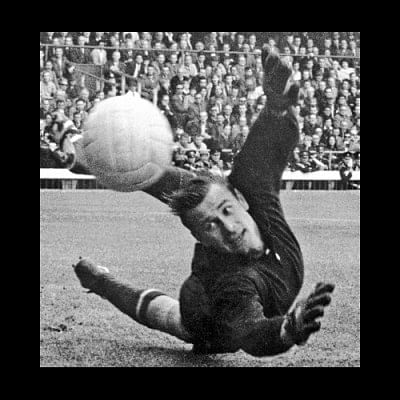The early years

Fragmented they could not win a World Cup or achieve European glory. United they still could not win a World Cup. But Soviet Union had their first and only European silverware when it was introduced in 1960. In a tense final in Paris they beat Yugoslavia 2-1 to mark a turbulent yet successful journey of what is now regarded as one of the most followed global events. Just for the football fans' understanding, it may be mentioned here that West Germany, Italy and England -- the three major powerhouses of world football -- did not take part in the inaugural edition. The case with Spain, who went on to win three European titles alongside Germany, was more interesting. Spain refused to play the quarterfinal against Soviet Union as part of a 'political protest'. But it hardly took the gloss out of a competition where a goalkeeper hogged the spotlight for his outstanding performance under the bar. Called 'the impregnable spider', Soviet Union goalkeeper Lev Yashin -- the only goalkeeper to have won a Ballon d'Or -- took his team to glory. Although England did not take part it was Englishman (Arthur Ellis) who refereed the final.
Uruguay's Luis Suarez is the middle alphabet of the deadly MSN Barcelona attack now. But Spain had their own Suarez, who led them to their first major silverware in 1964 against a team they refused to play four years ago. For so long regarded as international football's great underachievers, Spain could always hold up their 1964 UEFA European Championship triumph as an argument to the contrary. Nearly 80,000 fans turned out at the Santiago Bernabéu to watch the hosts defeat the holders 2-1 in the final. And chief among the Spain team was talismanic midfielder Luis Suarez, who had already helped Internazionale Milano to the first of back-to-back European Cups that season. Before the final, Spain coach José Villalonga sketched a pitch on sand and used stones to represent his players, pine cones for the USSR. Stones, he said, were stronger.
In 1968, it was Italy's time to rise from the ashes to lift their first European title. Having hit rock bottom at the 1966 FIFA World Cup, where they suffered an embarrassing defeat against North Korea, the Azzurri also needed a certain degree of luck for their only European title.
As it happened, Italy's progress came down to a coin toss when their semifinal against the Soviet Union ended goalless after 120 minutes. The referee applied the correct procedure and the Azzurri were promptly awarded a Rome showdown with Yugoslavia. At the Stadio Olimpico, Italy fell behind to a Dzajic effort after 39 minutes and looked to be heading for defeat until Angelo Domenghini struck with ten minutes remaining to force a replay two days later, which Italy won 2-0.
To be continued

 For all latest news, follow The Daily Star's Google News channel.
For all latest news, follow The Daily Star's Google News channel. 



Comments